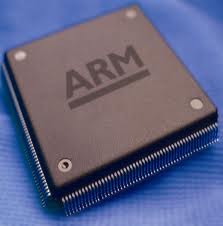Eyeing IoT Expansion, SoftBank Buys ARM

Chip intellectual property vendor ARM Ltd. is being acquired by Japanese technology conglomerate SoftBank Group in a bid to provide more of the semiconductor technology underlying future networks of connects sensors and smart devices.
SoftBank (TYO: 9984) plans to acquire ARM (LSE: ARM, NASDAQ: ARMH), Cambridge, U.K., for about $32.25 billion in an all-cash deal. The buyer said it expects to finance the acquisition through a combination of cash on hand and debt. The deal is reportedly the largest since Britain voted to exit the European Union last month.
"The transaction enables the combined group to fully capture the 'Internet of Things' opportunity," the partners said in announcing the surprise deal on Monday (July 18).
Masayoshi Son, founder and chairman of SoftBank, asserted that chip design capabilities such as ARM's represent "the best investment and [return on investment] for the IoT."
ARM CEO Simon Segars noted in a video interview posted on the 25-year-old U.K. chip designer's web site that it was not shopping itself. "ARM and SoftBank share a vision of the way technology is going to change people's lives, the way technology is going to enable communication and collaboration around the world," Segars said.
"With SoftBank's backing, with the level of investment that they have made into this business, we believe we'll be able to achieve more than we could standing on our own," he added.
ARM's roughly $1 billion in annual revenues are derived mostly from licensing processor and system-on-chip, or SoC, designs. It has recently attempted to make headway in the x-86-dominated server market. ARM and Taiwan Semiconductor Manufacturing Co. (NYSE: TSM) announced a multiyear agreement in March to collaborate on leading-edge 7-nanometer FinFET process technology. FinFET stands for fin-shaped field-effect transistor, an emerging process technology that reduces leakage current in SoCs.
Late last year, ARM announced a deal with IBM to collaborate via IBM's IoT Foundation to use ARM devices based on its "mbed" chips to collect and analyze data from intelligent devices like industrial appliances, weather sensors and monitoring devices.
ARM's IoT strategy focuses on developing and scaling its "mbed" technology, which includes a "full-stack" operating system tailored to its Cortex-M 32-bit microcontrollers and a "device server" that handles connections from IoT devices. The IoT server is designed to make protocols and security requirements accessible through REST APIs to cloud stacks, enterprise software and web applications, ARM said.
Meanwhile, SoftBank said it would retain ARM's senior management team along with its "partnership based business model" that mostly involves licensing its intellectual property for chip designs. The Japanese company also pledged to "double the employee headcount" at ARM facilities in the U.K. over the next five years while expanding the number of overseas engineers working for the combined company by an unspecified amount over the same period.
"ARM will be an excellent strategic fit within the SoftBank group as we invest to capture the very significant opportunities provided by the 'Internet of Things'," the Japanese company said.
Related
George Leopold has written about science and technology for more than 30 years, focusing on electronics and aerospace technology. He previously served as executive editor of Electronic Engineering Times. Leopold is the author of "Calculated Risk: The Supersonic Life and Times of Gus Grissom" (Purdue University Press, 2016).











